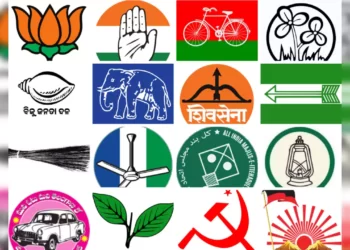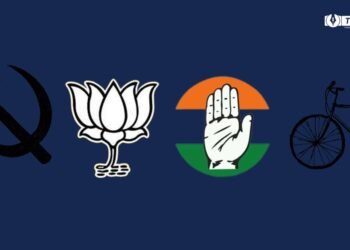[ad_1]
The Criminal Procedure (Identification) Bill, 2022, was brought to the Lok Sabha by the Centre on Monday. The Bill intends to give police legal authority to take biological and physical samples of those who have been detained, arrested, or convicted.
The samples will include:
- Fingerprint impressions, palm prints, and footprints.
- Photos, iris, and retina scans.
- Biological and physical sample analysis.
- Behavioural attributes, such as handwriting and signature.
The Criminal Procedure (Identification) Bill, 2022 was introduced without any democratic oversight and severely compromises the privacy of citizens and defendants.
It repeals the Identification of Prisoners Act of 1920, as stated in its objectives and grounds as “modern techniques to capture and record body measurements.” Further, it adds that it is required to extend the range of individuals who can be measured.
The proposed Bill, in contrast to the Identification of Prisoners Act of 1920, has three extensions to expand surveillance capabilities. To begin, consider the number of data points. “Iris and retina scan, biological samples and their analysis, behavioural features,” according to clause 2(1 (b).
The second aspect is the people from whom the data will be compiled. Any person who is arrested under any regulation is included in clause 3(c) (includes petty offences such as traffic violations). Data of only criminals or people on bail/security can be stored under current law.

The database work, which will then be done by the NCRB (National Crime Records Bureau) under Clause 4, is the third and potentially most worrisome component. All of these records will be collected, stored, processed, and shared. The period of retention is set at 75 years.
To summarize, the new law now dangerously widens the aim of identification to establish the crime of the accused, as stated in its own statement of objects and reasons. Since there are few constraints, this is a potentially serious infringement of privacy.
It’s also unclear whether or not will biological data include DNA. Lately, the DNA Technology (Use and Application) Regulation Bill, 2018, was under scrutiny for the use of DNA in criminal investigations.
These factors raise grave concern and the Criminal Procedure (Identification) Bill, 2022 should be referred to an appropriate standing committee for review. This is especially important to guarantee that the Puttaswamy (Right to Privacy) Judgement of the Supreme Court is followed.

Clause (3) of Article 20 declares that no person accused of an offence shall be compelled to be a witness against himself. 3. it is a protection against such compulsion resulting in his giving evidence against himself. In the Puttaswamy vs Union of India decision, the Supreme Court ruled that any governmental action infringing on the right to privacy must be justified by legislation.
No individual accused of a crime shall be compelled to testify against oneself, according to Article 20, Sub-Article 3. Taking and allaying biological samples could lead to narcoanalysis and neuroimaging of the accused or convicted.
The bill aims to provide police and courts with the authority to take data of people who are awaiting trial who are suspected of being involved in a case, on the assumption that they may commit an illegal act in the future.
The opposition demanded a vote on the bill’s introduction, calling it “illegal” and “unconstitutional” and a violation of the fundamental right to privacy. However, the opposition was defeated, with 120 members voting in favour of introducing the bill and 58 voting against it.

Ajay Mishra Teni, Union Minister of State(Home), downplayed the opposition’s concerns when introducing the Bill, claiming that the move was necessary to allow for the use of advanced techniques to capture and record proper body measurements.
Mr Teni’s son, Ashish Mishra, was the main accused in the Lakhimpur Kheri case and was granted bail last month on February 10th. Now that Ashish is out of jail, it seems prima facie that the privacy of citizens has become a secondary concern.
The central government may use this as another propaganda against the opposing parties. The number of politicians and workers of the BJP, who have criminal charges on them is far more than any other party, but that does not seem to be the concern. And in accordance with the recent norm, the people opposing this will be labelled anti-government, and be accused as the ones who don’t let the government bring safety to the nation.
Also Checkout: What is the inside story of Brijesh Pathak becoming Deputy CM?
[ad_2]
Source link









